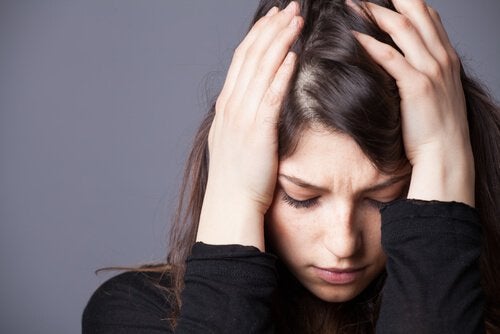Anxiety is a condition that arises from the interpretation that there is a danger or threat around us and that we must flee or face it if we want to survive.
Anxiety is classified as a negative state that we should not feel because physiological symptoms are very unpleasant and restrict our freedom. But in reality, well-managed anxiety is a healthy adaptive emotion without which we would not have survived.
- Today.
- Many people around the world suffer from anxiety and it manifests itself in many ways.
- But they all have in common the fact that the anxious person interprets reality as very threatening.
- As terrible or as a catastrophe.
The anxious person believes without hesitation that something bad is going on and that you have to prepare, either to escape to save yourself or to fight for yourself.
Negative thoughts that generate anxiety often take the form of questions, these questions are meant to confirm our own beliefs, be it the need for approval, perfection, security, etc.
In this sense, emotion has the function of helping us achieve our goals which, in the case of anxiety, are struggle or flight, and this is done by behavior, but when we are anxious at a very high level, we realize that emotion does not help us, but prevents the achievement of goals and puts obstacles in all our goals.
The key to avoiding this is to change our interpretations, while changing the way we behave, so we must be able to detect our beliefs, question them, discuss them and replace them with the most real ones.
We have already commented that anxiety often communicates with us by asking questions that alert us and activate physiologically, these can be negative issues with which we filter reality, so we see as very likely a small possibility of danger.
Anxiety usually requires a small chance, but in cases of generalized anxiety, the possibility of danger extends to many situations of daily life, making life very difficult for the anxious person.
What if? Extend to all situations (children, couples, environmental, work, etc. ), what,, people should be vigilant for a long time and in many situations, without physical and mental rest.
They feel they have to worry that these catastrophic, though unlikely, odds are not happening, and believe their concerns are real.
In this case, people are anxious about the symptoms of their own anxiety, it’s like the child who fears him in his own shadow, and the more he runs, the more he pursues it.
The questions focus on the catastrophic consequences of the physiological manifestations of anxiety, which may resemble certain diseases and even make us think that we are going crazy or that we are going to die. Some people are afraid to fall, faint and be ashamed, so avoid leaving the house, thus consolidating agoraphobia.
In the case of hypochondria, anxiety frightens us by questioning the possibility of getting sick and even dying; in an attempt to alleviate this fear we have two opposing behaviors: we overcontroll our health or avoid going to the doctor. if we’re sick, we get rid of the worry.
In social phobia, our inner devil? We constantly wonder what will happen if we do something ridiculous, if we have nothing to say, if we?Or what others might think of us.
This barrage of questions scares us, we are red with shame, we sweat, we resist and we are afraid that people will notice our discomfort, because it makes us feel even more “fragile”. Finally, we end up fleeing these “dangerous situations. ” for us, by confirming that we have no other choice.
As we have seen, anxiety is an inner devil who likes to keep us alert, make us sweat, tremble, warm up or freeze, this devil has fun asking us negative questions or telling us that everything is dangerous and that we must escape.
The less you care about him, little by little he gets tired and leaves us alone, the key to dealing with him is to accept him and tell him that we already know his tricks, but this time we are prepared and we will not be afraid. So easily.
Challenge that devil, don’t trust him or believe him, because he’s a liar, but even if it makes you feel uncomfortable, uncomfortable or scared, remember that this is an unreal interpretation and that the symptoms of anxiety are the product of an emotion, in the end, he just wants to help us.

